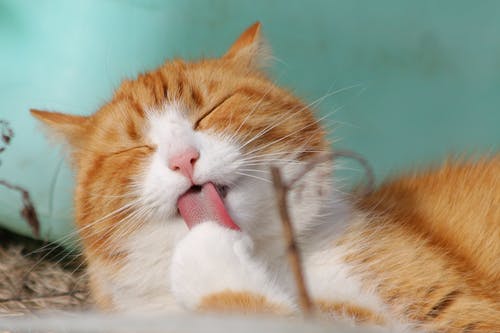
Cats are prone to upper respiratory infections or “colds.” If you’ve ever had a cold, you realize how horrible and undesirable it can make you feel. It’s the same with your feline buddies, too. Cats who sneeze or have runny noses are more than likely suffering from a cold.
Things to Do When Your Cat Has a Cold
A “cold” in a cat show an upper respiratory tract health problem. Your cat might become fatigued and reduce its appetite if infected with an infection. Since the virus spreads through the air, even indoor cats are prone to catching a cold despite vaccination. Here are a few easy things you can do in your home to help your feline companion feel better.
Feed Them Strong-Smelling Foods
To be able to eat, a cat must be able to smell. Cats with a cold may benefit from being fed many more strong-smelling foods than expected to help them remain nourished. Strong-flavored canned fish and other foods are the most effective choices when your cat obtains a cold.
When your cat is sick with a cold, ensure they get fluids. Ensure that they have access to safe drinking water at all times. You may also provide some chicken broth to consume. Heat the broth for 30 seconds to a minute to boost the aroma. A vet nutritionist specializing in puppy & kitten vet care may give important insight into your pet’s nutrition information, which might be valuable if you’re hesitant about what to feed them.
Boost Their Immune System
Supplementing your cat’s vitamin C consumption can additionally assist them in fighting an upper respiratory health problem. Cats can endure doses varying from 250 to 500 milligrams each day. Give your cat Vitamin C daily for the next four days to help them combat illness. Your cat’s loose feces may be caused by vitamin C. Vitamin C can create loose feces in cats, so if this occurs, reduce the dosage you’re giving them.
For more information, you need to consult a veterinarian internist before acquiring any vitamin supplement for your cat to confirm that you provide the appropriate dosage to your pet.
Give Them Plenty of Water
Even if your cat has an upper respiratory health problem, you must keep providing water to keep them hydrated. Numerous animals have a strong choice for drinking water that is moving, and if you’ve discovered that your pet isn’t drinking as much as it needs to be, purchasing a little electric water fountain could be a suitable option.
On the other hand, colds in cats are entirely innocuous and typically disappear by themselves after a week or two. As a preventative measure, watch your kitty’s health; if it doesn’t improve by the fourth day, call an emergency veterinarian. Moreover, ensure to check about their hospital and services before contacting them. Pneumonia is a potentially severe complication that can occur from a persistent cold that does not get the necessary treatment.
Bottom Line
Older cats, kittens, and cats with underlying problems that make them much more vulnerable to the effects of a cold need to be provided additional attention. Cats that are nursing or have not been vaccinated are specifically at risk. Make an appointment immediately if your cat fits into one of these classifications. Additionally, guarantee they get follow-up appointments to keep their health balanced.
